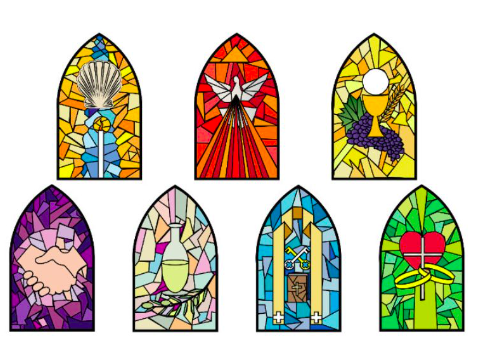The sacraments hold a significant place in the life of many religious traditions, particularly in Christianity. These sacred rituals are regarded as essential milestones in an individual’s spiritual journey, offering profound encounters with the divine. Rooted in rich theological and historical foundations, the sacraments hold immense importance for believers, shaping their faith, fostering community, and nurturing their relationship with the Divine. In this article, we delve into the significance of the sacraments and their transformative power in the lives of believers.
1. Encounter with the Divine
The sacraments are perceived as moments of encounter with the divine presence. Through the sacraments, believers experience God’s grace, love, and transformative power in tangible and meaningful ways. Whether it is the baptismal waters, the consecrated bread and wine of the Eucharist, or the healing touch of the sacrament of reconciliation, the sacraments serve as channels through which believers enter into a direct relationship with God. These encounters provide solace, inspiration, and a sense of belonging, as individuals experience God‘s presence in their lives.
2. Symbolism and Ritual
Sacraments are deeply rooted in symbolism and ritual. They utilize physical elements such as water, bread, wine, and oil, infused with spiritual significance, to convey deeper truths and mysteries. For example, in baptism, water symbolizes purification and rebirth, while the Eucharist represents the body and blood of Christ, signifying unity with the divine and fellow believers. Through participation in these rituals, individuals engage their senses, bringing the spiritual realities to life and deepening their understanding of God’s profound love and sacrifice.
3. Grace and Transformation
Central to the sacramental experience is the concept of divine grace. It is through the sacraments that believers receive and participate in God’s grace, which is understood as the unmerited favor and presence of God working within individuals. Through the sacraments, believers are empowered and transformed by God’s grace, enabling them to grow in faith, overcome challenges, and embody the teachings of their faith tradition. The grace received in the sacraments strengthens believers’ resolve to live a life aligned with their religious values and fosters spiritual growth and maturity.
4. Community and Communion
The sacraments foster a sense of community and communion among believers. Many sacraments, such as baptism, confirmation, and marriage, are communal celebrations that unite individuals in a shared faith experience. These sacraments not only strengthen the bonds within religious communities but also emphasize the interconnectedness of believers within a larger spiritual family. The Eucharist, in particular, is seen as a sacrament of unity, where believers partake in the body and blood of Christ, symbolizing their shared participation in the life of the faith community.
5. Milestones and Rites of Passage
The sacraments mark significant milestones and rites of passage in the lives of believers. From birth to death, the sacraments accompany individuals throughout their spiritual journey, providing guidance, support, and solace in times of joy and sorrow. Whether it is the sacrament of baptism, which welcomes individuals into the faith community, or the sacrament of anointing of the sick, which offers comfort and healing in times of illness, these rituals anchor believers in their faith and provide a sense of continuity and purpose.
6. Sacraments as Sacramentals
Sacraments are also considered sacramentals, sacred objects or actions that are blessed and set apart for religious purposes. As sacramentals, the sacraments become tangible reminders of God’s presence and grace in everyday life. For example, wearing a baptismal cross or displaying a blessed image of the Holy Family in the home serves as a constant reminder of the individual’s commitment to their faith and their connection to the divine.
Conclusion
The sacraments hold a deep and transformative significance in the spiritual lives of believers. Through encounters with the divine, participation in symbolic rituals, reception of God’s grace, fostering community, and marking significant milestones, the sacraments shape and nurture the faith of individuals. They provide believers with a tangible connection to the divine, offering solace, guidance, and a sense of purpose. The sacraments serve as powerful conduits through which believers deepen their relationship with God, grow in their faith, and find sustenance for their spiritual journey.
